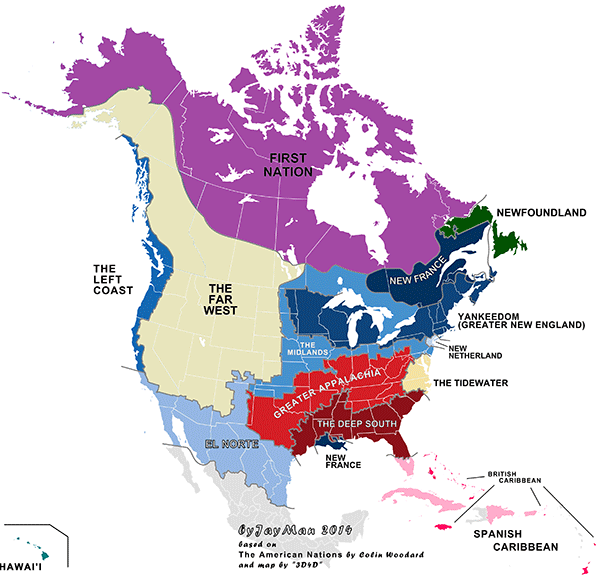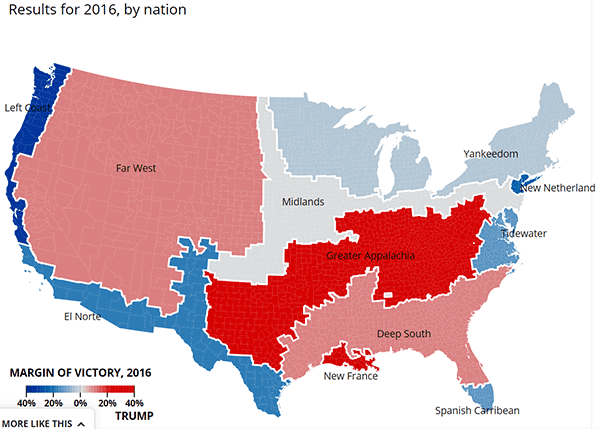The Genetics of the American Nations
Throughout my American Nations series (based on the books American Nations: A History of the Eleven Rival Regional Cultures of North America by Colin Woodard and Albion’s Seed: Four British Folkways in America by David Hackett Fischer) I’ve talked about how North America is divided into distinct ethnocultural regions based on historic settlement patterns...

Previously I’ve established that these boundaries reflect genetic differences among different Americans in different places. This is because all human behavioral traits are heritable, with “nurture” (as it’s commonly thought of) playing a minimal to nonexistent role in each. This means that genetic differences between different peoples lead to differences in their behavioral traits, which, collectively, manifests as cultural differences. As John Derbyshire put it, “if dimensions of the individual human personality are heritable, then society is just a vector sum of a lot of individual personalities.” See my Behavioral Genetics Page for more.
It’s also important to note that (as I’ve discussed previously in this series) assimilation is largely an illusion. Cultural and behavioral characteristics can persist for many generations as long as the people who exhibit them remain.
And now, a new paper in Nature bears out the genetic roots of the American nations. In “Clustering of 770,000 genomes reveals post-colonial population structure of North America” (Han et al, 2017), we see that Americans can easily be partitioned into distinct regional clusters...
Previously, in my post Genes, Climate, and Even More Maps of the American Nations, we saw that the founding British colonists came from distinct parts of the British Isles and settled in different parts of North America. The founding British stock are themselves visible in the genetic data, as we saw from fine-scale analysis of Britain (Leslie et al 2015, ungated link here):..
While the original colonial ancestry of the country has been overrun by subsequent migrants, the founding stock remain as a genetic undercurrent – a common genetic thread – within each American nation...
Indeed, even in the 2016 presidential election (despite being a bit less regionally skewed than previous years) the American nations still were clearly divided in same ways they were previously...

